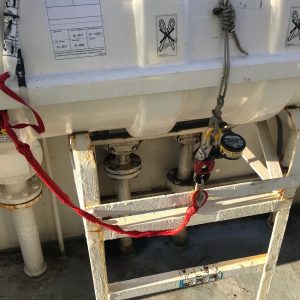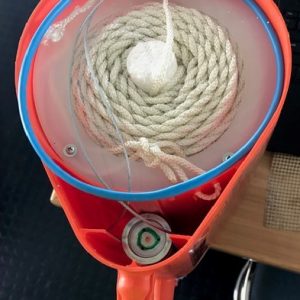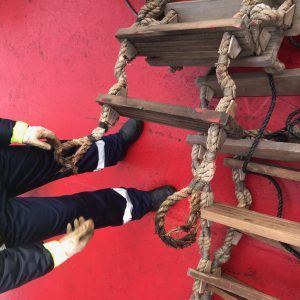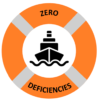port state control success
Vessel Vulnerability Assessments™
carried out using paris Mou inspection process and procedures - on a confidential commercial basis
The assessment is a benchmark for compliance and follows the process of a full scope (thorough) PSC expanded inspection and will identify deficiencies that are preventing zero deficiency PSC inspections and zero incidents.
Assessment is our unique process of combining a PSC inspection with ISM auditing/inspection techniques, to provide you with a valuable report not only on what is going wrong, but why it is and how the root cause can be addresed.
All identified deficiencies will be recorded, with their regulatory references to ensure validity, in addition to the expected codes that would be used during a real PSC inspection, providing many benefits:
- The ship is inspected un-announced to give a true representation of the state of the vessel
- The Master and Crew are given the valuable experience of dealing with a PSC inspector, with guidance on how to interact positively
- All deficiencies are recorded, devoid of pressure to under-report, to allow effective review, sustainable rectification and fleetwide benefit
- The assessment is untainted by intra-organisational relationships, budgetary involvement, checklist fatigue or other blocking behaviours
- PSC performance is quickly and sustainably improved by utilising the extensive training and experience of real PSCO’s, with the added benefit of improving safety, wellbeing and culture onboard
- Inspections can be carried out on a periodical basis, to harmonise with anticipated PSC inspection visits, or at any time a completely objective assessment of a vessel is required
- The report remains 100% confidential between us and you and will not be shared with any external party
We provide 2 levels of Assessment:
Completed with one full day onboard, major deficiencies identified and immediate remedial training provided to the crew where required. Full report provided with review of deficiencies and suggested solutions for sustainable rectification.
Completed with 2 full days onboard, a comprehensive list of all deficiencies and comprehensive training provided to the crew where required. Full report provided with review of deficiencies and suggested solutions for sustainable rectification.
We have carried out many assessments, with our clients enjoying outstanding PSC performance following our attendance onboard. There may be other organisations that can talk the talk, but we can also walk the walk and will refund the assessment fee if we don’t provide results!
Terms and Conditions apply
Isn't this what an HSEQ department should do?
With a shortage of suitably experienced shore staff to conduct vessel inspections, often attempts are made to replace competence, knowledge and experience by a long checklist. This does not help with PSC performance, a checklist is no match for the skills and knowledge of a formally trained Port State Control Officer!
We have Oil or other Industry inspections, isn't that enough?
No, some inspections can give misleading results, it is important to take into account the time available for the amount of questions and the competency of the inspector. Some regimes only require seafaring experience and not any surveying/inspecting skills, with the competence element being addressed by large checklists that are not possible to realistically complete in the time available.
It must be also be considered who is the beneficiary of the inspection, often they are commisioned by potential Charterers as their risk assessment due diligence, and not for the sole benefit of the shipowner.
We have Flag State inspections, doesn't this cover PSC items?
Whilst undoubtedly useful, most Flags need to authorise inspectors on a contract basis to carry out inspections on their behalf, to have a global presence, hence the competence of inspectors is widely varied and they are usually restricted to the contents of a checklist provided by the Flag State, with time often very limited. There are many items that will be verified during a PSC inspection that may not be identified on a Flag State checklist. PSC don’t use checklists, they utilise formally trained inspectors with comprehensive polices, procedures and processes that are optimised to identify compliance or deficiencies.
We have RO surveys, don't they cover PSC items during attendance?
RO’s have a renewed invigorated commercial focus, striving to reduce survey time and keep costs competitive. This has led to insufficient time onboard to carry out a survey scope effectively, let alone allow any time for inspection. In our experience, the only time we’ve seen an RO surveyor tasked to carry out a thorough inspection is when visiting a vessel during a detention.
Other Organisations offer pre-PSC inspections, what makes you different?
The processes, policies and procedures of PSC are confidential documents and not known by anyone that has not worked for an MoU Authority. After being the subject of inspections, or reading through reports, some may purport to be ‘experts’ but the truth is very different. Before engaging a pre-PSC inspector, ask for evidence of authorisation as a PSC Officer from a mature and trusted Administration. There’s a huge value difference between engaging a formally trained PSC Officer to guide you, and a salesman with just another checklist. We will deliver measurable results and not just an invoice.
We are so confident that our Assessments will do exactly what they say on the tin, we offer a full money-back guarantee, how many other survey/inspection/audit organisations can say that?
My vessels have not been detained before, haven't we got it covered?
No. Often, detentions come as a shock, with vessels having a previously good PSC history. It doesn’t mean that suddenly something has gone wrong with the vessels condition, the variables of a PSC inspection are not often known and considered by Shipowners, ISM Companies and other stakeholders and make a huge difference, often the difference between a clear report and a detention.
The reasons are many, including political, and only those that have actively worked as PSCO’s tend to be aware. Blindly reviewing PSC history and MoU whitelists, as a definitive metric, assumes that all ships fulfilling the criteria for detention are detained, they most certainly are not.
The only way to sustainably succeed is to not have any identifiable deficiencies!
PSC detention assistance
we can respond rapidly and effectively, and provide immediate guidance
If the Master of a vessel is concerned that the vessel may be detained, there are several immediate actions that must be taken to reduce the likelihood of detention, and also ensure the best possible outcome if the vessel is detained. Getting this right will make a huge difference, get us involved from the very beginning and we will ensure the odds are in your favour.
Timely attendance of a former PSC Officer to represent your company, communicate with Authorities, provide crew training and provide solutions to deficiencies that will be accepted by PSC for release, will significantly shorten the time your vessel is detained and losing revenue. It will also remove the personal risk that a company representative (DP) may face if the ship is detained for Statutory breaches abroad.
Often, shipowners engage their RO to perform this task, but may lack human element experience in addition to being heavily restricted in becoming too involved in rectifications and crew training, due to a conflict of interest. In our experience this is not the most efficient way to proceed, although they may be needed to carry out any additional surveys/audits that are required for release, albeit at sky high occasion survey rates!
Detention and Deficiency Challenges
a large number of deficiencies and detentions are raised in error
Detentions, ISM deficiencies and deficiencies can have a disastrous effect on Company and Flag performance, many mistakes are often made by PSC Officers that could be successfully challenged and compensation awarded.
We can provide the in-depth knowledge of PSC and regulatory requirements, in addition to a thorough understanding the review process. We have defended challenges whilst working within PSC, and can now can use this knowledge to assist Shipowners and Flag States in challenging decisions that may have been made in error.
In the first instance, detentions and deficiencies can be challenged without cost to the Shipowner, or legal advocate involvement.
Company & Flag Performance and SRP
often these key psc target factors are not fully evaluated
With a comprehensive understanding of how PSC databases operate, and their synthesis with member States and their obligations, we are able to offer valuable guidance to minimise PSC risk factors even before we carry out an assessment onboard. You don’t need to search for the best compliance employees, we can fill the space as, and when, you need it.

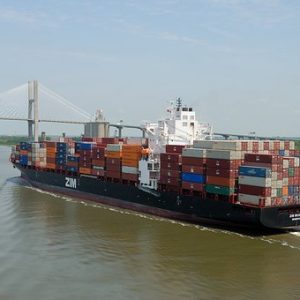
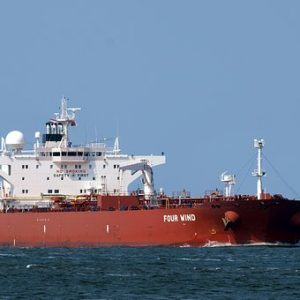

Deficiencies are a window into the SMS
By transforming the way in which deficiencies are viewed, from an inconvenient side-effect of an inspection or survey, into a reliable indicator of issues that present a risk to the operation, and the implementation status of a positive safety culture, has huge benefits. Until now, all inspections and surveys focus on proving compliance with a standard – with differing levels of scrutiny, our experience has shown that does not guarantee compliance and we are leading the way in challenging that ineffective mindset.
Deficiencies may be technical, human element or documentary based, and if they remain undetected have great potential to cause harm to your organisation. This could be in the form of PSC deficiencies, PSC ISM related deficiencies, PSC detentions, personnel accidents or vessel incidents. Experience shows that the outcome of PSC inspections and incidents is often exacerbated by the presence of further undetected deficiencies.
Using our unique and visionary process, which combines auditing and inspection with the relevant instruments of Port State Control and inspector based competence and experience, not checklists, we are able to identify deficiencies that exist, and provide valuable guidance on their root cause and how to rectify them sustainably.
WARNING - The apparent root cause of some deficiencies may present an opportunity to blame people, this should never be the case as nearly all deficiencies are related to a systemic failure of one kind or another, and not the reckless acts of persons. Understanding this concept is the first step on the path to sustainable rectification! 